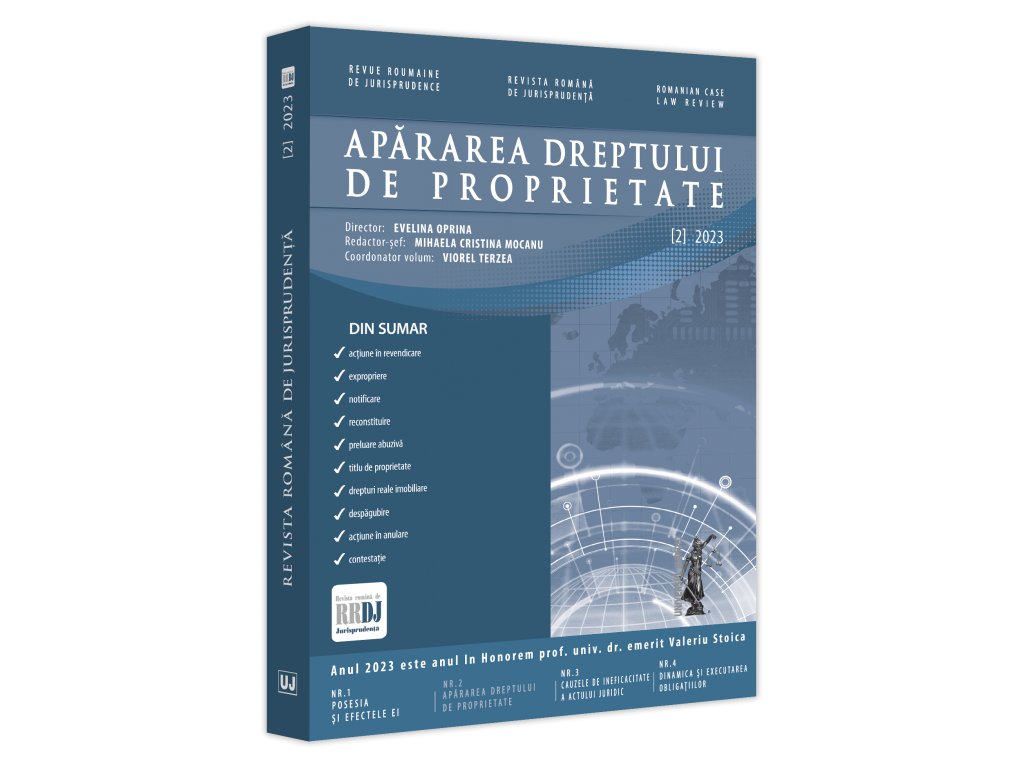Building abusively taken by the state. Notification under Law No 10/2001. Inclusion of the asset in the public domain of the State. Appeal against the decision rejecting the notification. Restitution of the property by court order. Claim for recovery. Eff
JURISPRUDENȚĂ COMENTATĂ ȘI ADNOTATĂ
Abstract
According to Article 6 para. (1) of Law No 213/1998, the public or private domain of the State or of the administrativeterritorial units is the property acquired by the State on the basis of a valid title, and it is not sufficient simply to mention the character of property belonging to the public domain if it has not been legally included in this sphere.
The fact that by decision of the county council, a property was inventoried and then certified, according to a government decision, as belonging to the public domain of the county, is not such as to justify a valid title to the property, given that, at the time of inclusion in the public domain, there was a notification for it, and according to Article 21 para. (5) of Law No 10/2001, the unavailability of the property was effected precisely in order not to prevent the return of the property in kind to the former owner.
Thus, after the procedure governed by the special law has been exhausted and after final recognition, following judicial proceedings, of the right of ownership, as a former owner dispossessed by wrongful taking of the property by the State, the only means available for the claimant to obtain restitution of the property from the wrongful possessor is to file an action for recovery, which the defendant cannot block by simply pleading the unenforceability of the earlier judgment given under the special law, as long as it has not proved that it has a valid right of ownership which is better justified than the plaintiff's title or which has a specific legal regime which is capable of removing it from the civil circuit (through immunity from alienability or immunity from seizure).
Any judicial act, like any legal act in general, since it introduces new elements into the civil circuit and the social order, produces not only relative effects (in the relationship between the parties), but also effects of enforceability against third parties.
As this is a new element inserted into the legal and social order, third parties cannot ignore it, and the effectiveness of the act in the internal relations between the parties (which means not only the relativity of the effects, but also their binding nature) can only be definitive by taking into account and recognising the enforceability of the effects against third parties (who will, however, be able to remove them, insofar as they prejudice their rights and prove the contrary of what was previously ruled by the courts, in the absence of their participation in the legal proceedings).








